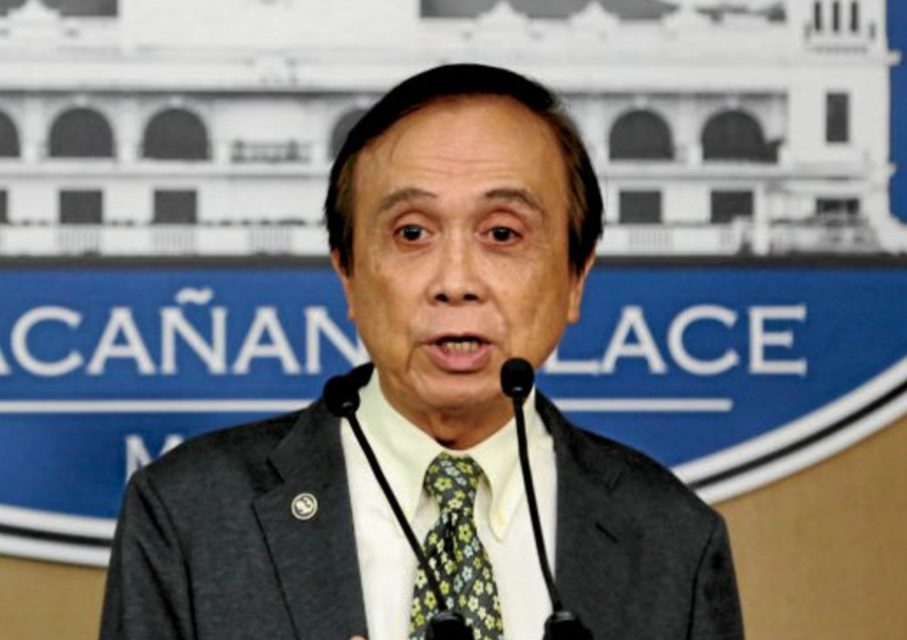
(Eagle News) — The Philippine government should put in place “mitigation measures to cushion the transitory inflationary impact of the Tax Reform for Acceleration and Inclusion (TRAIN) law,” according to the National Economic and Development Authority (NEDA).
This was following “recorded increases in the country’s inflation rate” this January 2018 when inflation rose to an “annualized 4 percent” — the highest since the 4.3 percent inflation posted in October 2014.
NEDA, on Tuesday, February 6, reported that inflation in the Philippines last month hit its highest level for more than three years due to President Rodrigo Duterte’s new tax measures and poor weather.
This was after President Rodrigo Duterte in December signed a tax reform law known by its acronym TRAIN which is aimed at raising funds for a massive spending program for new roads, railways, ports and airports.
It included a rise in the excise tax on coal, the fuel that runs almost half the country’s power plants, and tax increases on tobacco products, automobiles, petroleum products and even sweetened beverages.
“The push in inflation is partly due to TRAIN, considering particularly the excise on fuel and additional sin taxes,” Socioeconomic Planning Secretary Ernesto M. Pernia said in a statement.
“With the initial inflationary effects of TRAIN, we must ensure faster provision of financial assistance through the unconditional cash transfer (UCT) program,” said the official who also heads NEDA.
Pernia said the unconditional cash transfer for the poor will help the poorest 50 percent of Filipino households cope with the transitory impact of TRAIN on prices.
He, however, reiterated that the effects of the TRAIN, which overhauled the country’s tax system for the first time in two decades, would be “minimal and temporary.”
NEDA said that at this time, it is important to have “vigilant price monitoring and prompt action to curb profiteering.”
-Increase in food and non-food prices –
The increases in food and non-food prices were the main causes of the rise of the country’s inflation to 4 percent in January 2018. It hit the upper band of the government target, as reported by the Philippine Statistics Authority.
This is also higher than the previous month’s 3.3 percent and the 2.7 percent in January 2017.
A NDEA release explained that the rising food and non-alcoholic beverage prices, as well as the series of typhoons late last year, led to the higher inflation in January. It said that the typhoons last year “crimped supplies of farm products.”
The January figure, however, still remained within the government’s 2.0 to 4.0 percent inflation target for the whole of 2018.
-First package of TRAIN-
The first package of TRAIN reduced the income taxes of 99 percent of the country’s income taxpayers.
It was the commodity group of alcoholic beverages and tobacco which recorded a double-digit inflation of up to 12.3 percent from 6.4 percent in the previous month. This however comprised only 2 percent of the consumer basket.
NEDA said that the “faster overall price increase of goods” can be attributed mainly to the 4.5 percent increase in the food and non-alcoholic beverages segment. This constitutes 39 percent of the consumer basket.
-Typhoons in last quarter of 2017 also contributed to inflation, says NEDA-
It also blamed the successive typhoons from October to December last year also contributed to the increase in prices of goods.
“The faster price adjustments, especially for fruits and corn, can be partly traced to the lingering effects of successive typhoons that occurred in the last quarter of 2017,” a NEDA release said.
Pernia again called for the replacement of quantitative restrictions on rice imports with tariffs. This, he said, will stabilize the country’s rice supply and lower the price of rice.
“When the quantitative restrictions are replaced by tariffs, the government will also be better able to help enhance the country’s competitiveness and productivity in agriculture. Revenues from tariff on imported rice will be used to finance government programs for agriculture,” the NEDA chief explained.
Over the medium term, the fast-tracked infrastructure development in the next few years, including reforms in the energy sector, will ease electricity prices, Pernia noted.
Meanwhile, among other non-food commodities that posted higher inflation were transport (3.2% from 2.4%); restaurant, miscellaneous goods, and other services (3.7% from 3.0%); health (2.6% from 2.2%); and furnishings, household equipment, and routine maintenance of the house (2.0% from 1.9%).
The prices of housing, water, electricity, gas, and other fuels, which account for about 22 percent of the consumer basket, slightly eased to 3.7 percent from 3.8 percent in December. This deceleration partly offset the upward pressure on the prices of consumer goods.
The Philippines posted 3.2 percent inflation for 2017.
(with an Agence France Presse report)







